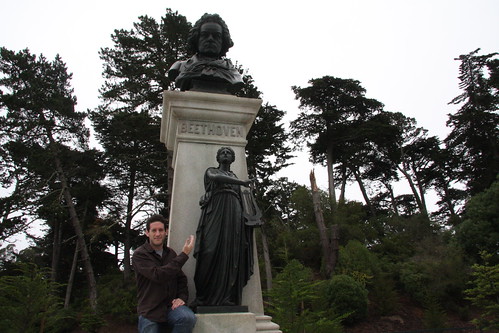The following guest post is from Aaron Dunn, founder of Musopen and member of the OKF’s Working Group on the Public Domain.

Several years ago, I began a small project I called Musopen (derived from Music + Open Source). As a college student, I was confused as to why record labels were suing their own customers and frustrated that there were no legal alternatives (sources of copyright free music). I became inspired to create Musopen using what recordings I could obtain from my musician friends and college orchestra.
Over the past few years Musopen has been fairly dormant: a small niche site for classical music recordings. I’ve spent most of this time contacting musicians I know personally, writing to music departments to donate music, and very slowly adding more music to the site. Building any community is not an easy thing, but it is even tougher though when that community is made up of groups of people asked to sit and record music and then give up their rights to those recordings. Due to the difficulty in getting new music, I was sure Musopen would remain a small side-project with little potential for growth.
New Approach
Inspired by the success Diaspora experienced with their upcoming Facebook clone, I decided to run a KickStarter campaign for Musopen with the goal of hiring an orchestra. I was hoping it might act as a small PR stunt to draw attention to the project. My original goal was $11,000, just barely enough to hire a decent orchestra and record a small set of music. With a fair amount of international attention including NPR, BBC, Wired Magazine and other coverage, we raised well over our goal receiving over $70,000.
Crowdsourcing Formula
Clearly, crowdsourcing worked in this case. However, not all crowd-sourcing approaches work equally well. I tried something very similar before which despite today thinking it would be a better approach, didn’t work. A year ago I created a feature on the site which allowed users to donate or as I called it “bid” for specific pieces of music. The idea was to create a collaborative Ebay for music, where user’s donations could be combined to purchase music into the public domain.
Not much came of this, many pledged to donate but didn’t pay. There are a few reasons why this happened. One reason is understandable: people wouldn’t donate unless they were certain the piece would be recorded. Many also have specific conditions regarding the license that should be used or specific musicians that should be hired.
KickStarter freed me of these issues as it allowed us to raise money with a singular purpose of freeing as much music as we could afford. Also notable, many of those who donated to Musopen aren’t particularly music people. Kickstarter allowed us to reach an audience passionate about freeing culture or public domain works.
What’s Next for Musopen?
With all the attention the project has received, we are focused on showing that the same model we’re proving for recordings will work for all aspects of music and music education. We are about to finish a college-level music textbook and I am interested in creating several more textbooks, online music theory tutorials, free music lessons/classes, integrating other more modern forms of music and much more.
I’m excited that KickStater and our success has shown that there is potential for open music. We have a lot of projects moving forward and if you or anyone you know is interested in working with us please feel free to write me at aaron@musopen.org.
This post is by a guest poster. If you would like to write something for the Open Knowledge Foundation blog, please see the submissions page.









1 thought on “How we crowdfunded $70k to make public domain recordings of public domain works”
Comments are closed.